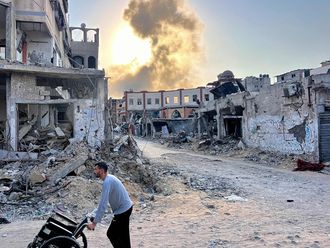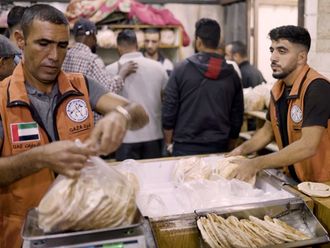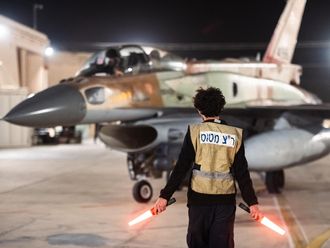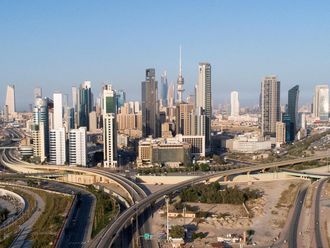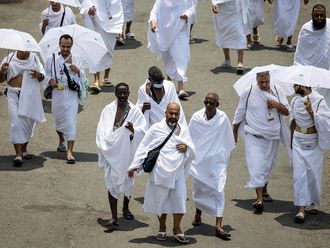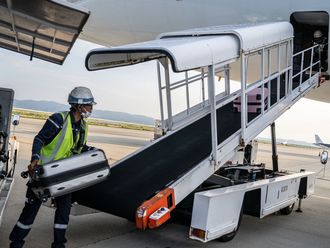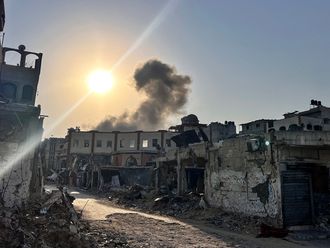Cairo: Tahrir Square fell strangely silent on Monday as thousands of Egyptians across Cairo went to the polls.
Pockets of resistance stood out in the square, but they were in their dozens rather than hundreds and nothing like the scale of recent weeks.
A few protestors kept up chants, while others sat atop lamp posts and railings looking forlorn. Stewards continued to frisk and check IDs of those entering Tahrir, but the energy of the protest hub - palpable from blocks away even in last night’s rain - had certainly waned.
Disheveled youngsters begged as tourists braved the lull in protests to take snaps of the banners and tents that litter the centre of the square.
Mean-looking military units guarded the entrance to the Ministry of the Interior and other central government buildings, but the protesters wrapped in blankets and sleeping meters away did not pose any threat.
Meanwhile, tea sellers like Hassan, appreciated the low key atmosphere.
‘Hamdallah, yes.’ he said, when asked about the atmosphere in the square.
‘It may get busier again later.’
The future of Tahrir as a centre of protests is uncertain as the first round of elections take place in central Cairo, although veterans of the democracy movement are optimistic that the area - formerly a busy roundabout and central thoroughfare - will continue to be a public space.
Even less clear is the supreme council for the armed forces’ (Scaf) tolerance for continued protests once the elections are underway and a government is formed.
But whatever the result of the polls, protesters will want to see key issues addressed by the new government and the military, most notably the prosecution of police officers accused of killing demonstrators during the 10 months since the revolution began.
‘None of the officers that was killing demonstrators have been prosecuted, and some of them still have their jobs,’ Hala Barakat, a professor and activist, told Gulf News.
She speculates that Scaf did not realise the scale of the movement when they took power, meaning that they are now struggling to fulfill what demonstrators - and the Egyptian people - want and need.
‘I think that they didn’t realise how difficult it is. Egypt has changed, we are not the same Egypt anymore. There are people who are ready to die to express themselves, and they are a young generation. It wasn’t like that before.’
Th scenes in Tahrir were in stark contrast to polling stations across the country, where thousands queued for hours to cast their votes.


